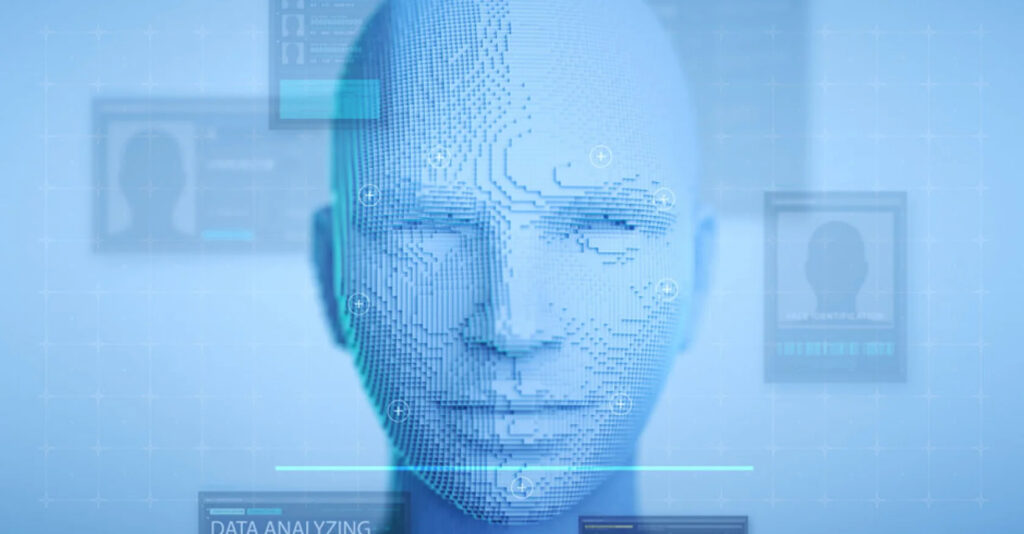
Image source
By James Myers and Mariana Meneses
Human history provides many examples of how we underestimate the rapid development and future uses of our technological innovations.
A prime case of this is the internet which, since it became widely available only 20 years ago, has transformed our world in ways that no one predicted at the outset.
In quantum computing, a powerful new technology is now under development. The machine’s speed and accuracy are already proving, in some limited instances, more powerful than the best supercomputers now in use, although it’s widely thought that the scientific and financial challenges the quantum computer faces might not be resolved for another decade.
All powerful technologies come with ethical issues. Can we afford to defer the ethical discussions around quantum computing? When the machine’s power is unleashed, will we have enough time to address its human consequences?
The ways that the speed and power of the quantum computer might affect the world are, for the present, unknowable, because we can’t predict the timing and consequences of our own ingenuity. But what if, like the internet, quantum computing becomes viable and widespread much more quickly than many think? Who will have access to it, what applications will it be used for, what are its potential benefits and what harms might it cause, and what kinds of regulations and controls might be necessary?
The internet is a case in point: before its widespread use, no one predicted the rise of social media and the host of serious ethical issues that it causes, including increased rates of suicide and other mental health issues, and its destabilizing effects on democracies – particularly in a year like 2024 when half the world will be casting votes in national and regional elections.
Had early planning for the advent of social media occurred, we might not have found ourselves in the current predicament.
For someone born in the last 20 years during the era of the internet, it may be difficult to imagine what the world without the internet was like for those born only a few decades earlier who are now middle-aged.
Fortunately, the internet provides evidence of its own consequences. Above is a brief clip of a 1995 interview of Microsoft founder Bill Gates by David Letterman. At that time, the internet was not widely available to the public and broadband connections were rare. The few public users there were could access the internet only over phone lines using modems that were extremely slow by today’s standards, achieving a maximum speed of 56k bps. Many internet users today have access at speeds sometimes 1,000 times faster.
How far off-target are we with our predictions now about the future of quantum computing – maybe as much or more than Bill Gates and David Letterman were in 1995 about the internet?
One of the most difficult issues with quantum computing might not be the technical problems it presently faces, but its future ethical use. With so many differing opinions, ethics presents thorny issues that require a great deal of time to resolve, while history demonstrates that human ingenuity is capable of overcoming the mightiest scientific hurdles very quickly. The speed of scientific resolution is especially quick with a spark of genius like that of Albert Einstein, whose Theory of Special Relativity in 1905 triggered a massive transformation that continues to shape our world.

Facial recognition technology is advancing rapidly, with its use set to expand in airports. Untargeted facial recognition is a high-risk practice now banned under the European Union’s new A.I. Act. How will the capabilities of facial recognition technology change in the era of quantum computing? Image: Government Technology
The rapidly accelerating rate of investment in quantum computing is an indicator that a breakthrough might be close at hand.
There are now hundreds of thousands of people working around the world, either directly or indirectly, in the heavily male dominated industry. Some of the world’s biggest companies, including IBM, Google, Microsoft, and Amazon, are investing heavily in the technology. This April, McKinsey estimated the industry could be worth $1.3 trillion in little over 10 years, noting that governments have already pledged $34 billion of investments in quantum computing.
In spite of the dramatic increase of investment in the technology, McKinsey reports that its discussions with quantum computing technology executives, academics, and investors reveal 72% believe there won’t be an error-free machine within the next 10 years, and the remaining 28% don’t foresee this happening until after 2040. But what if these individuals are underestimating their combined potential?
The future often arrives faster than we think.
Are we on the precipice of a transformative moment now, with quantum computing? If a breakthrough were to occur next week that solves the error correction problem which has so far constrained the technology, how would the future unfold from that point? How will the power of quantum computers be used by the people or companies or governments that control them, and how will they deal with the rest of us who either don’t understand the technology or don’t have access to it, if we’re stuck with the sluggish binary computers we now use?
The quantum computer could be very powerful indeed, possibly with unlimited potential in its ability to calculate and measure probabilities and combinations with speed and accuracy that far exceeds even the most powerful supercomputers of today.
The power of the quantum computer derives from the physics of the quantum, which is the smallest amount of energy in the universe that can either cause change or be changed. The quantum computer transmits its signals from quantum to quantum and it does so, not one at a time like the “on” and “off” (or 1 and 0) electrical signals in the wiring of today’s computers, but with the phenomenon known as “superposition.”
When one quantum is in superposition with another quantum, it means the two are connected in a way that what happens to one quantum instantly happens to its partner.
Instantly: as in no time at all.
There is literally no way to imagine what no time at all is like, because it’s not like any thing in time. Even the fastest, most sophisticated binary computers of today take time, and however quick we think that time might be, it’s still time. Time is irrelevant, however, for two quanta that are in superposition, and disposing with time provides the machine with an incredible advantage over today’s time-bound computers.

Remember the Blackberry? Introduced in 1999, the text-only device with the physical keyboard achieved a global peak of 85 million users, which reduced by 75% within 5 years after the introduction of Apple’s iPhone and Google’s Android software-driven phones with their graphic interfaces. Blackberry maker Research In Motion failed to anticipate the popularity of new technology and the competition drove the company, once extremely profitable, near the point of bankruptcy. Image of three generations of Blackberry phones from Wikipedia.
The computers and laptops and tablets and “smart”phones that we rely on today could seem like antique museum pieces, at least to those few who might control the first truly effective quantum computers.
When that time will come is anyone’s guess, but what if it’s not a decade but a year away, or a month, or even a day? Is it worth the gamble how the future will turn out, and what does history say about past gambles on how time unfolds? Even if the irresponsible use of power eventually undermines and defeats itself, history shows that much damage can be caused in the process.
The Quantum Record examines the philosophy of quantum technology and quantum ethics.
The philosophy of technology is crucially important to understand at pivotal moments in time like now, in 2024, and like 30 years earlier when the internet was in its infancy. The “why” question is key: why are we investing time and money in this, why do we want to develop it, why and who will it benefit, and many other “why’s,” – which is inevitably the question after the scientific “how” is resolved. It might require only one further discovery to perfect the logic that resolves the problem of quantum error correction, and that could happen tomorrow or ten years from now – it’s unknowable, and one that’s particularly big and risky in the context of ethics.
Others are beginning to think ahead to the ethical consequences of quantum computing, and by introducing this new series on quantum ethics The Quantum Record wants to spread news of their good and important work, and engage as many as we possibly can in a crucially important discussion about the type of technological future that we want to shape. We hold the power of the quantum, that tiniest cause or effect of change, practically in our hands and we can’t afford to fumble it.

We’ll set out here some of the broad categories that will be examined in greater depth in forthcoming articles.
Our goals are to broaden and strengthen the conversation on the questions of ethics that brings together the scientists working so hard on the “how” questions of quantum technology with its future users, for whom the “why” questions will be paramount.
The bridging can only be done with a common language, which is especially tricky with quantum computing because of its incredible complexities in mathematics, physics, geometry, engineering, and computer science. With the unresolved question of the quantum observer effect, there remain deep, unsolved mysteries about the nature of the quantum itself and its connection with us, the conscious observers. Our aim is to build on the work of those pioneers already beginning to consider the ethical implications of the technology, and to add our voices to their ranks.
Here, in no particular order and with a brief synopsis, are some of the principal areas we’ll focus on in coming articles, and we’ll be covering other issues as they develop.
Quantum encryption crisis

Image by OpenClipart-Vectors on Pixabay.
Private and sensitive data, like e-mails, bank accounts, credit cards, and trade secrets, are now most commonly encrypted using prime number factoring which is extremely difficult for today’s computers to crack. Quantum computers can, however, factor prime numbers far more quickly, a realization that has triggered concern among many about a looming quantum cryptography crisis in which already-encrypted data can easily be decrypted in the future. It’s thought that unethical actors are already storing data they can’t currently access, with the expectation that they will be able to break the code in the future with the help of quantum computers.
Prime number factoring is a mathematical process that uses the fundamental theorem of arithmetic to break a number into the product of two or more prime numbers. A prime number is divisible only by one and itself, and every number greater than one can be derived by multiplying two or more prime numbers. Although a number like 1200 is relatively quickly broken down into its prime factors 2, 3, and 5 (as in 1200 = 24 ∙ 31 ∙ 52), finding the prime factors of large numbers is a time-consuming task with today’s computers. Operating in a quantum computer, Shor’s algorithm uses polynomial time – the vastly decreased time scale that applies to quantum signals in superposition – to factor the prime basis of numbers far more quickly.
Unless a method to factor prime numbers in polynomial time can be developed for classical computers, existing cryptographic methods will be rendered obsolete in the post-quantum era.
Fair and equitable access to the technology

The Guardian reported in 2021 on Google’s use of its market dominance to in threatening to cut off the flow of information to 27 million Australians over proposed legislation the company disagreed with.
As we noted, some of the world’s largest companies like IBM, Google, Microsoft, and Amazon are investing heavily in quantum technology. If one of them, or another company, government, or person were to perfect the technology, would they share it with the rest of the world? If so, at what cost, and would it be subject to regulation?
As a result of the quantum computer’s potential speed and accuracy, the “quantum advantage” (a term that was formerly called “quantum supremacy”) could be incredibly significant for the first developers. Will there be inequities in the way such an advantage is used? Will large profits be extracted from users?
History shows that companies like Google, which has a near-monopoly on internet search and effectively controls the world’s index of data, can make record profits from their dominant positions – and the law of accounting is that every dollar of profit that someone makes comes at the expense of someone else.
Even with potentially widespread access to the powerful technology, there remains the issue of its complexity and the extent of training required to enable its use. Quantum computing is heavily reliant on knowledge of physics, mathematics, geometry, engineering and computing science, and we could ask now whether these skills will be equally widespread when the technology becomes available. If only a select few understand how it works, the few could become very powerful.
Military use of the technology
As The Quantum Record has previously noted, the U.S. and other military forces are already investing heavily in technology and educating students in STEM fields.
Military automation is now a driving force to which quantum computing could add significantly. Take, for instance, the U.S. military’s new “Replicator Initiative,” which is funding the development of autonomous systems and is intended, as U.S. Deputy Defense Secretary Kathleen Hicks stated, to counter China’s “biggest advantage, which is mass. More ships. More missiles. More people.” Noting that, “This is about mastering the technology of tomorrow,” Hicks stated, “After all, we don’t use our people as cannon fodder like some competitors do.”
It is difficult to know to what extent powerful militaries, like those of the U.S., China, and Russia, are investing in quantum technologies, since current activities and future plans aren’t publicized for strategic reasons. The technological weapons in their arsenals are, however, now so fearsome that the question is one of concern to the safety of every human on the planet and is in the forefront of ethical issues for quantum computing.

The U.S. Navy’s Middle East-based 5th Fleet experiments with autonomous marine drones serving in Task Force 59, which will test Replicator systems. Image: MC2 Jacob Vernier/U.S. Navy
The technology’s power to create visual simulations
As the saying goes, “Seeing is believing,” and when we see something almost perfectly life-like we often don’t stop – or don’t have the time to stop – to consider whether it’s real or fake. “Deepfake” images of people doing or saying things that never occurred are already a plague on the internet, placed there by malicious actors who either benefit from distorting our perception of reality or taking revenge against others.
Holographic images produced by a quantum computer could be powerfully life-like, because the computer can handle combinations and permutations of data pixels far more quickly than any present machine. When that happens, how will we know whether to believe the images we see on our screens or to question their reality? Will we know who put the images there, why they did it, and for whose benefit?
Today’s “classical” binary computers can produce already very convincing holographic images, as in this revival of the legendary 1970s pop rock supergroup ABBA that fills stadiums with fans who feel that they are experiencing the real event even though many of them were born long after ABBA disbanded in 1982. The quantum computer could take such experiences up many times closer to reality.
The technology’s power to manipulate genetics
DNA, which is the basis of our genetic information, is an incredibly complex structure that operates as an instruction set for the folding of proteins in our bodies. Protein-folding is not yet fully understood and challenges today’s fastest supercomputers because it involves an incredible number of combinations and permutations requiring vast computing power.
In 2022, Google’s AlphaFold technology predicted the structures of over 200 million proteins, a 2000% increase in the number it had predicted only a year earlier. Significant advances in CRISPR technology, which was the subject of the 2020 Nobel Prize in Chemistry, are making it easier to manipulate DNA by removing, adding, or changing its sequences. While there will likely be significant medical benefits from the technology, for example in combatting diseases like cancer that override the proper sequencing of cellular replication, there can be abuses. The power of the quantum computer could amplify the potential for abuse.

We don’t have to look far for examples of genetic abuse with existing technology.
In 2018, researchers in China went to prison for a widely-condemned and failed CRISPR experiment in which they attempted to create human babies immune to HIV. While regulations exist to prevent human experimentation like this, we can see they are not always effective and the power of quantum computing technology might outrun the regulators.
Particular care is required to prevent experiments in eugenics, a discredited practice of more than a century ago based on the false notion that the human genetic pool could be “improved” by sterilizing people with genetic traits deemed undesirable. Genocide, such as Hitler’s extermination of the lives of six million Jews as recently as 79 years ago, is the next step on the path of eugenics.
The technology’s power to forecast and influence human behaviour
Forecasting the future involves probabilities. With 7.8 billion humans who can choose either action or inaction at any moment in the present, there are exponentially that number of future probabilities in our behaviour that defy any supercomputer.
There is potentially great profit to be had from correct predictions of human behaviour. For example, finance firm Goldman Sachs is developing quantum computing algorithms that would give it incredible speed and accuracy in predicting the trading values of derivatives. Bought and sold in financial markets, derivatives are contracts on the expected future value of an underlying asset such as stocks or commodities. The trading prices of derivatives are established based on perceptions of the relative present risks and variability of the asset in relation to other market alternatives. The accuracy of derivatives pricing requires mathematical analysis of statistical probabilities over time in a process known as “monte carlo simulation,” a task for which the speed of the quantum computer will provide a significant financial advantage.
If only one company, or a handful of them, is able to outrun other traders on financial markets, what will happen to the majority who lack the technology, and where will the profits go?
Watched globally over 100 million times, The Social Dilemma received two Emmy Awards and raised awareness of the ways that human behaviour can be manipulated over the internet.
And what about other types of human behaviour, particularly in politics where actions have long-lasting consequences? In a January 2024 Phys.org article, Dorje C. Brody asks, “Could quantum physics be the key that unlocks the secrets of human behavior?” In a February 2021 article, Scott Fulton III asks, “Could quantum computers fix political polls?” Quantum computing could deliver a new understanding of cognitive and emotional biases. As argued by researchers Thomas Holtfort and Andreas Horsh, quantum social science, a new research area, is challenging the basic assumption that social life, decision-making behaviour, and consciousness are classical physical phenomena.
If this is true that certain aspects of human irrationality can be explained by mathematical models borrowed from quantum physics, this could potentially allow for the exploitation of these biases.
Famously, Daniel Kahneman, Amos Tversky, and others observed that, in behavioral economics, systematic errors in judgment and decision-making arise from the use of mental shortcuts or heuristics, such as confirmation bias, where people tend to seek information that confirms their existing beliefs. (A brief overview of the idea is in this pdf from Rutgers University).
As shown in a 2022 paper by Alvaro Huerga, from the University of Deusto, in Spain, and co-authors, one of the main challenges in human behaviour modelling is predicting users’ next actions. Algorithms like Quantum Kernel Alignment and Quantum Support Vector Machines propose new methods for anticipating human actions and decision-making processes. By harnessing the principles of quantum mechanics, researchers aim to overcome the limitations of classical computing in understanding the complexities of human behaviour, potentially offering insights into voting patterns and political affiliations across diverse populations.
The future is now.
Obviously, the application of quantum computing in predicting and potentially manipulating political behaviour raises significant ethical concerns. The ability to simulate vast datasets and model intricate social dynamics, in a fraction of the time it would take classical supercomputers to accomplish, presents the risk of exploiting cognitive biases and vulnerabilities in individuals.
Moreover, the accuracy and scale of such predictions could empower entities to influence elections and public opinion in countries and regions around the globe.

Image by Gerd Altman, of Pixabay
The advent of quantum social science poses fundamental questions about the ethical boundaries of manipulating human behaviour and the potential for democratic processes to be undermined by technological advancements.
There are also, as we have outlined, a host of other issues which could ultimately and severely affect human behaviour.
History demonstrates that we often underestimate human ingenuity, and the potential power of the quantum computer is not something that we should risk underestimating. Many will seek to use it for their advantage at the expense of others, from a profit motive or many other motivations driven by a desire for personal benefit.
There’s no time like the present to plan for the human future in the era of quantum computing. As we have witnessed with the European Union’s recently-enacted A.I. Act, the ethical discussions will require time and effort, but there is a great deal at stake with the quantum computer.
Future generations will be grateful for our attention to the ethical issues, and it’s a duty we owe to them as well as to ourselves as we stand on the precipice of the power of quantum technology.



